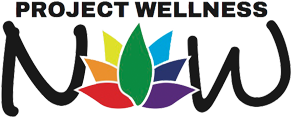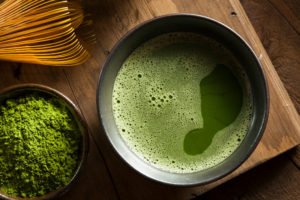Many people like the idea of volunteering their time and resources to support those needing assistance in their neighborhood, community, or even around the world. But did you know that helping others can also help elevate your health and wellness?
Take a look at 5 ways that giving from the heart helps strengthen your physical and mental well-being, and optimizes your wellness routine.

Helping Others Increases Longevity
A University of Exeter review of social studies that spanned 20 years found that those who volunteer have a 22% lower mortality rate than their non-volunteering peers. One group of 2,000 people was even able to lower their mortality risk by 63% by volunteering for two or more causes. In fact, giving support to others has been shown to have an even higher correlation to longevity than receiving support does. The key reason for this seems to be that volunteering provides people with a social support network, which helps boost their happiness levels by generating feelings of connectivity. It also lowers blood pressure, which decreases the risk of developing heart disease.

Helping Others Decreases Stress
One of the major benefits of increased happiness is the lowering of stress levels. Research indicates that giving from the heart is associated with the release of specific hormones that help buffer stress and stimulate the reward centers in your brain. Since ongoing stress is a leading cause of inflammation which leads to many of today’s top chronic diseases, including cancer and cardiovascular disease, managing it effectively is one of the best ways to ensure that you stay in an optimal state of health.

It Elevates Mental Health
Depression affects at least 11 million adults in the U.S. and over 300 million people worldwide. The good news is that those who volunteer experience reduced episodes of this condition. This is especially true for those who practice altruism over a prolonged time because it helps increase access to healthy social interactions and networks. Mental health experts agree that these social support systems provide many psychological benefits for those with mental health conditions, including emotional guidance and mentoring.

It Assists with Weight Loss
It seems obvious that giving in ways that increase your physical activity can assist with weight loss. Yet there may be a surprise bonus to volunteering: it appears to positively affect empathy levels, which in turn can lead to a decrease in body mass index (BMI). One study revealed that those who reported the highest feelings of empathy while volunteering decreased their BMI, cholesterol levels, and inflammation indicators the most. This unique connection between heart-centered giving and better weight management may be due to the fact that empathy is associated with reduced stress levels, which in turn leads to hormonal balances that help positively regulate weight.

It Strengthens Self-esteem
Those who practice altruism also report feeling a stronger sense of purpose and satisfaction in life. Research indicates that giving one’s time and energy in ways that uplift others provides a strong sense of accomplishment. This helps boost the giver’s self-esteem and increases their feelings of acceptance, which leads to improved self-care and healthcare activities in daily life. This can also help reduce the risk of developing serious illnesses and provide better coping mechanisms when challenges or health issues do arise. These coping skills buffer the impact of chronic or other diseases so that recovery time is improved.
Giving back is a wonderful way to elevate your healthcare regime, boost your wellness scorecard, and provide optimal mind-body balance for a happier, higher-quality lifestyle that benefits you for years to come.
Resources:
https://www.fastcompany.com/3016549/volunteering-makes-you-happier
http://www.biomedcentral.com/1471-2458/13/773/abstract
https://greatergood.berkeley.edu/article/item/5_ways_giving_is_good_for_you/
https://www.rush.edu/health-wellness/discover-health/health-benefits-giving
https://www.nationalservice.gov/pdf/07_0506_hbr.pdf
https://www.huffpost.com/entry/chronic-stress-health-inflammation-genes_n_4226420
https://www.ncbi.nlm.nih.gov/pubmed/12473312
https://www.nimh.nih.gov/health/statistics/major-depression.shtml
https://www.who.int/en/news-room/fact-sheets/detail/depression
https://www.verywellmind.com/social-support-for-psychological-health-4119970
https://open.library.ubc.ca/cIRcle/collections/ubctheses/831/items/1.0076869
https://www.restartmed.com/cortisol-and-weight-gain/
https://www.ncbi.nlm.nih.gov/pmc/articles/PMC2996275/
YOU MAY ALSO LIKE:
SUMMER SKINCARE ROUTINE: 5 SAVVY STRATEGIES BACKED BY SCIENCE
Summer is the perfect time to show your skin some natural love in the fresh breezes and warm sunshine. Knowing how…
6 WAYS TO INCREASE HEALTH&WELLNESS THROUGH STRETCHING
Ever since those early PE classes in school, you’ve been told to always stretch before exercising. Now that you’re older, you…
SWEET DECEPTION
We all love our sweets from dark chocolate to buttercream frosting. The lure of sugar is undeniable. In 1907, the average…
CHI NEI TSANG – WHAT YOU NEED TO KNOW
Chi Nei Tsang (CNT) is a healing practice developed by the Taoist monks in ancient China. Chi Nei Tsang translates into…
8+ TASTY WAYS TO EAT MATCHA GREEN TEA
You know green tea is good for you. It’s packed full of nature’s little foot soldiers: antioxidants, which help protect the…
SIMPLE YET DELICIOUS GREEN CABBAGE SALAD
We love cabbage at Project Wellness Now, so here is another great recipe! This green cabbage salad is very simple but…







